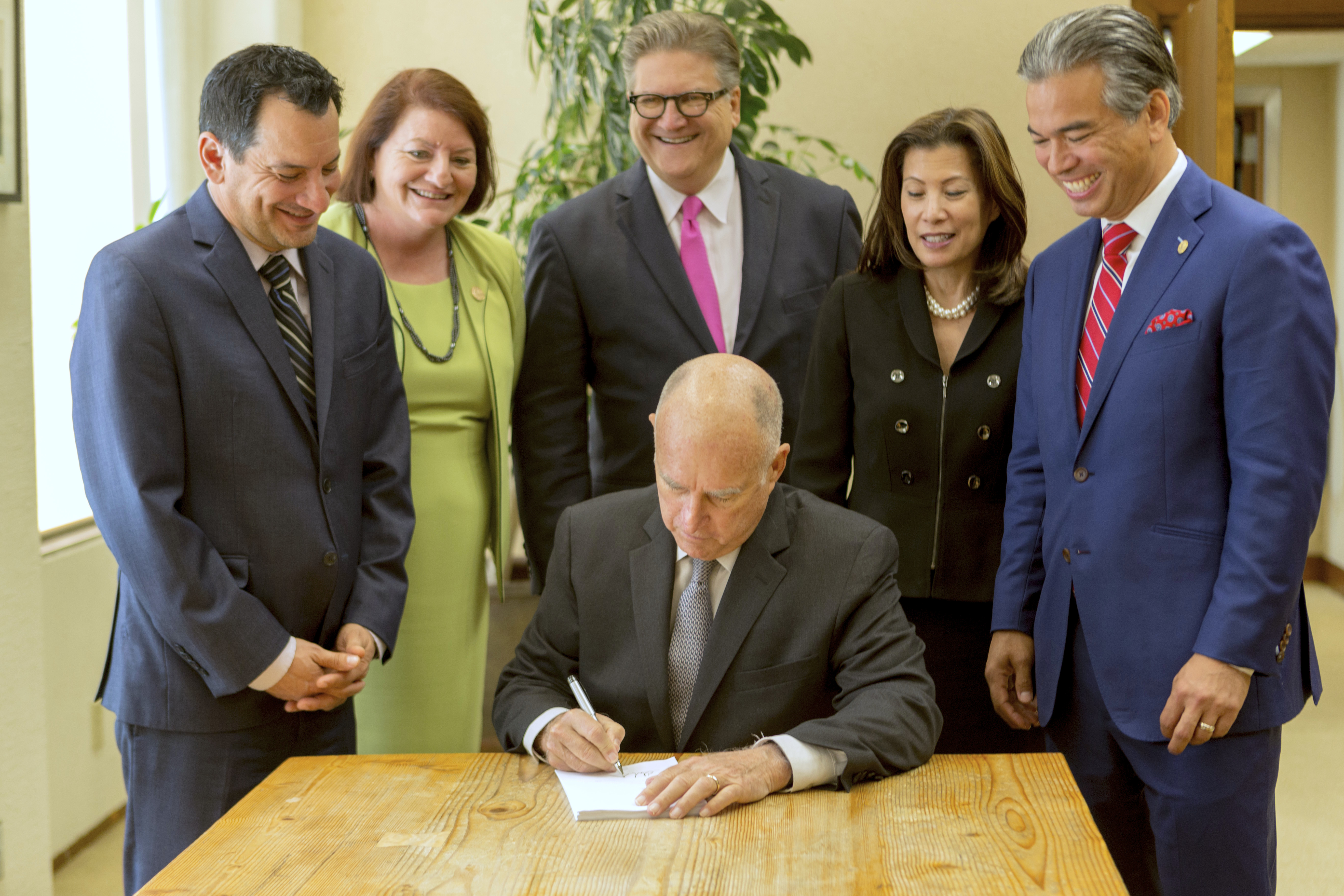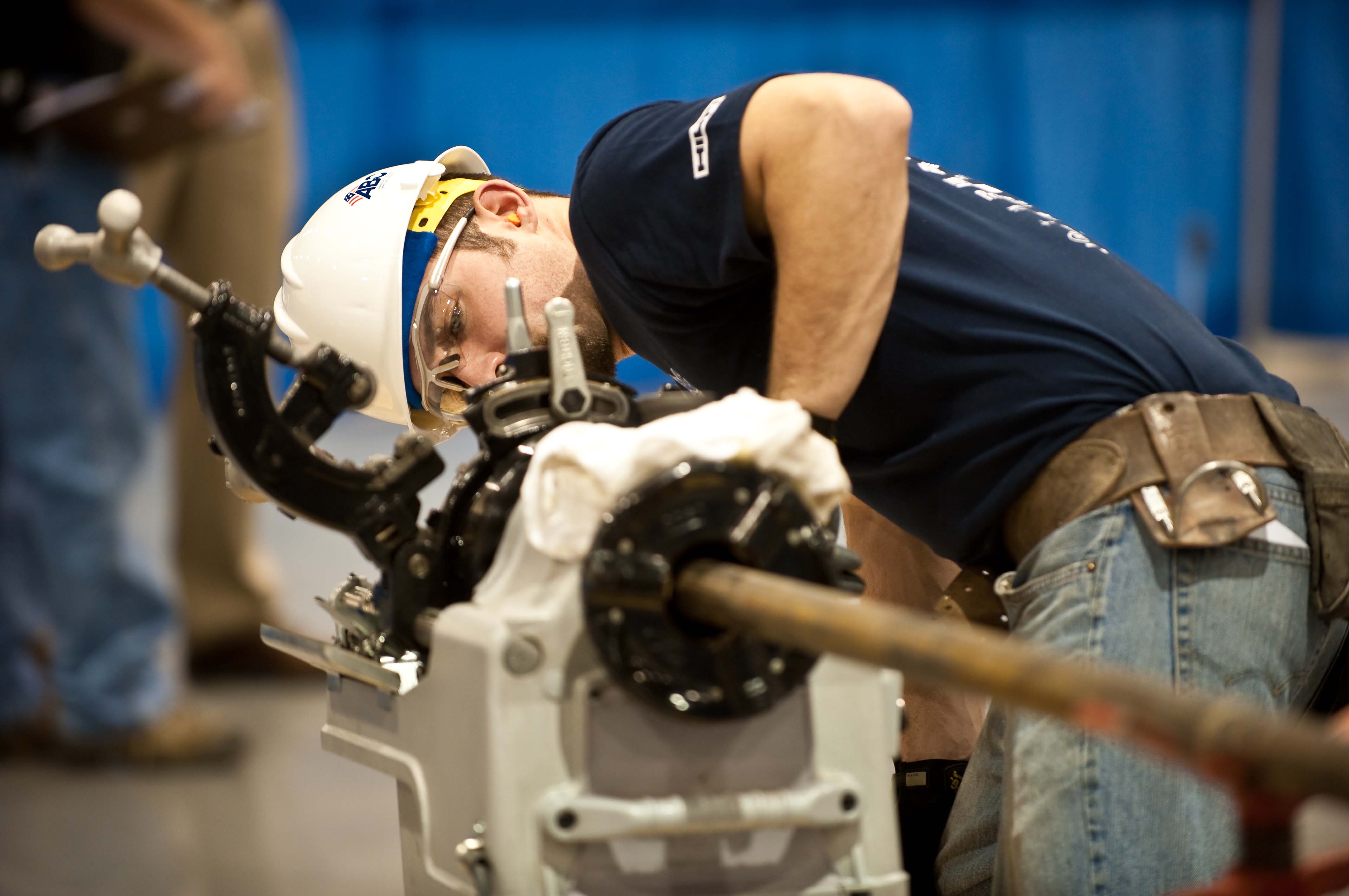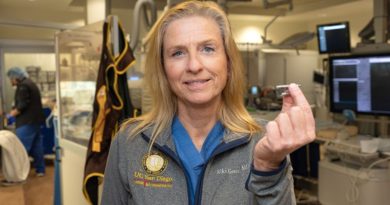Daily Business Report-Aug. 29, 2018
Signing SB 10. Left to right: Assembly Speaker Anthony Rendon, Senate President pro Tempore Toni Atkins, Gov. Jerry Brown, Sen. Robert Hertzberg, Chief Justice Tani Cantil-Sakauye and Assemblyman Rob Bonta. (Photo courtesy of the Governor’s Office)
Gov. Brown signs landmark
bail reform legislation
California will become the first state in the U.S. to end monetary bail for those awaiting trial after Gov. Jerry Brown signed landmark legislation to reform the bail system on Tuesday.
Senate Bill 10, which goes into effect on Oct. 1, 2019, was approved by the state legislature a week ago before being sent to the governor.
“Today, California reforms its bail system so that rich and poor alike are treated fairly,” Brown said in a news release announce the signing.
The legislation eliminates money-based bail as an option for someone to be released from jail awaiting trial.
Instead, counties will follow a pretrial risk assessment of a person before releasing them.
“Wealth is not the measure of any woman or man. By eliminating cash bail, we are saying that those with the least ability to pay should not be released or incarcerated solely on the basis of their wealth or poverty. SB 10 is only one leg of the long journey toward perfecting our justice system, but it is an important one,” Assembly Speaker Anthony Rendon said in a news release.
The bill faced sharp criticism from the bail bond industry and the ACLU. Critics have said the bill would cost the state hundreds of millions of dollars to establish, would increase the number of people in jail and would also give more power to judges.
The California Police Officers Association had come out against the bill before switching their stance to neutral.
_____________________
Port and Airport Authority
reach rental car fee settlement
The Port of San Diego and the San Diego County Regional Airport Authority have reached a settlement regarding the rental car fee currently being collected that will fund the construction of a parking garage on the Chula Vista Bayfront.
Under the settlement, the Airport Authority agreed to withdraw from a lawsuit that was filed by two rental car companies challenging the fee, and the Port agreed to several significant provisions that protect a number of Airport Authority interests.
“The Port and the Airport Authority are committed to being good regional partners, and this settlement supports financial sustainability of the Chula Vista Bayfront, a project that will create more than 20,000 permanent jobs with a regional economic impact of more than $2 billion annually,” according to a joint statement issued by the two agencies.
“I am pleased that we have reached a settlement with the San Diego County Regional Airport Authority regarding their response to litigation over a rental car fee, which is an important component of the Chula Vista Bayfront plan,” said Rafael Castellanos, Port of San Diego Chairman. “I want to thank everyone, including elected leaders and community stakeholders, who encouraged a prompt resolution of this matter.”
_____________________
Nearly half of city of San Diego
workers feel they are underpaid
The city of San Diego has the most workers who feel they are underpaid, according to a survey released by staffing firm Robert Half. The survey found that 62 percent of workers in San Diego feel underpaid, which led all other cities in the survey. That was followed by Austin, Texas (54 percent), Houston (53 percent), Nashville (53 percent) and Philadelphia (52 percent).
Other survey results:
- Cities with the fewest professionals who report being underpaid: Those in Miami (33 percent), Dallas (37 percent), New York (37 percent), Los Angeles (39 percent) and San Francisco (39 percent) were least likely to say they felt shortchanged.
- By age: More workers ages 55 and older think they are compensated fairly (52 percent) than those ages 18 to 34 (44 percent) and 35 to 54 (51 percent).
By gender: Women (49 percent) were more apt to feel underpaid compared to men (44 percent).
- By education and income level: Respondents with a bachelor’s degree or higher, as well as those earning more than $100,000 per year, were most likely to say they’re being paid fairly (50 percent and 57 percent, respectively).
_____________________
Climate report: 2/3rds of state beaches
could disappear completely by year 2100
The State of California Tuesday released California’s Fourth Climate Change Assessment, which details new information on the impacts of climate change and provides planning tools to support the state’s response.
Among the assessment’s warnings are that two-thirds of Southern California’s beaches could completely disappear and the average area burned by wildfires could nearly double by 2100.
Dan Cayan, a climate scientist at Scripps Institution of Oceanography at the University of California San Diego, served as editor-in-chief of the assessment and researchers from Scripps and California Sea Grant contributed to several of its technical and summary reports.
“To prepare for climate changes and to avoid possible catastrophic impacts, California needs a massive platter of scientific information,” Cayan said. “The Assessment supplies such information in finer spatial detail and with greater attention to episodic events, illustrating an extensive set of changes that may confront us over the next several decades.”
_____________________
AIS Technology Services launches
major infrastructure upgrade project
AIS Technology Services, a San Diego data center and cloud services provider, has begun a $2 million HVAC improvement project that will enable more efficient cooling of its Kearny Mesa Data Center. In the past six years, the company has invested nearly $18 million in capital improvements to its Lightwave Data Center, according to officials. The company is currently in the design and permitting phase of the project. Officials expects to break ground in the next 90-120 day.
“This improvement project comes on the heels of significant upgrades to the UPS systems at Lightwave,” said Ken Carter, vice president of critical infrastructure at the company. “Our experienced and dedicated internal Critical Infrastructure team, Network Operations Center staff, and contractors are working diligently to ensure that our infrastructure is designed, built, and maintained to world-class standards.”
_____________________
U.S. Chamber launches military spouse
economic empowerment zone here
The U.S. Chamber of Commerce Foundation’s Hiring Our Heroes, the city of San Diego and the San Diego Regional Chamber of Commerce announced the launch of a Military Spouse Economic Empowerment Zone (MSEEZ) in the San Diego region.
Established to connect military spouses with companies committed to hiring, MSEEZs are collaborative efforts among business, civic and military communities to build employment networks in municipalities around the country — now including the San Diego region.
The MSEEZ program grew from the findings of a recent U.S. Chamber of Commerce Foundation study, Military Spouses in the Workplace, which found that an overwhelming majority of employed military spouses thought having two incomes was vitally important to their families. However, the study said, only 50 percent of military families reported having dual-income status. This disparity reflects added strain on military families and can ultimately factor into a service member’s decision to stay in — or leave — the military.
_____________________
Scripps Research method may help
determine which mutations are risky
“We’re all mutants,” explains William Balch, a professor at Scripps Research. Scientists have long assumed that a person who appeared healthy had a relatively “normal” genome. “But we’re now realizing that variation is rampant and makes us who we are—uniquely,” he says. That’s why Balch and his lab have designed a way to look at a strand of DNA to find out what trait it codes for, or what deleterious mutation it might harbor. “We need to understand how these variants contribute to a trait—like the color of your hair—or, importantly, the harmful ones, a disease,” says Balch.
Until recently, there was no way to compare variants across large groups of people. Now, with the technology to sequence the human genome getting cheaper and cheaper, and with the launch of the national All of Us Research Program, Balch thinks we finally have enough data to determine how variants shape the population and each of us as individuals—and how variants could inform drug design.
_____________________
UC San Diego dean appointed chair
of science and technology board
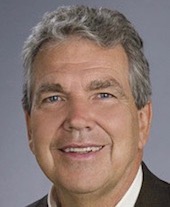
Peter F. Cowhey, dean of the UC San Diego School of Global Policy and Strategy and former interim executive vice chancellor of UC San Diego, has been appointed chair of the California Council on Science and Technology (CCST) Board of Directors effective Sept. 1. Cowhey succeeds the retiring Charlie F. Kennel,
who has served as CCST board chair since 2014. Kennel was the ninth director of Scripps Institution of Oceanography and Vice Chancellor of Marine Sciences at UC San Diego from 1998 to 2006.
Cowhey is a member of the Global Competitiveness Council and the Council on Foreign Relations. He served as chief of the International Bureau of the Federal Communications Commission during the Clinton Administration, negotiating U.S. international agreements for telecommunications and satellite services. From 1999 to 2006, Cowhey served as director of the University of California’s system-wide Institute on Global Conflict and Cooperation and as associate vice chancellor-international affairs from 2007 to 2009. He then served a 12- month assignment as senior counselor to Ambassador Ron Kirk in the Office of the United States Trade Representative in 2009.
_____________________
Personnel Announcements
Dominic Domingo joins San Diego Opera;
Andrea Puente-Catan also comes aboard
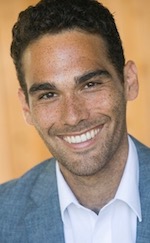
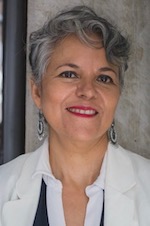
San Diego Opera announced that Dominic Domingo has been appointed to the position of director of artistic administration. Domingo will serve as adviser and assistant to the general director and contracts the company’s principal artists and conductors, while working with them and their managers to meet all needs related to the engagement.
Domingo was most recently the assistant company manager for Los Angeles Opera and the associate producer for Opera Recitals at the The Broad Stage in Los Angeles. He is also the associate producer of the Operalia Competition, a vocal contest held around the world which was started in 1993 by Dominic’s grandfather, Placido Domingo. Dominic will continue his engagement with Operalia in addition to his duties at San Diego Opera.
Domingo has a degree in Vocal Performance and Opera from the San Francisco Conservatory of Music and was a resident of San Diego from 2010 to 2014. He assumes his position on Sept. 10.
The company also announced that Andrea Puente-Catan has joined the company in the Development Department as a major gifts officer in charge of Hispanic affairs. Prior to joining San Diego Opera, Puente-Catan was the vice president of development and a cultural ambassador with the California chapter of the US-Mexico Chamber of Commerce. She has over 10 years of fundraising experience and has worked with New York City Opera, Los Angeles Opera, and Gotham Chamber Opera, among others. She is the founder of Bridges Consulting, which is dedicated to expanding the presence of Hispanic audiences and donors at arts and cultural intuitions, which is one of her primary duties at San Diego Opera.
_____________________
Nancy Sasaki joins United Way
as new president and CEO
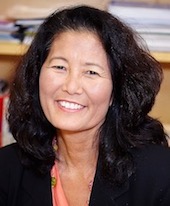
United Way of San Diego County’s board of directors has selected Nancy Sasaki as the new president and CEO of the 98-year-old nonprofit.
Sasaki has a strong track record of working with diverse local communities and building sustainable solutions through collaboration and strategic partnerships.
Most recently, she served as the executive director of Alliance Healthcare Foundation, advancing the health and wellness of people in San Diego and Imperial Counties through innovative and effective grantmaking and community partnerships.
Sasaki brings solid relationships with philanthropic leaders and decisionmakers countywide, as well as her acumen in strategic planning, team leadership and culture building, and fundraising for social causes.“
Sasaki serves on the board of San Diego Grantmakers, has worked alongside the local refugee community to implement major grants and is a founding member of the San Diego Impact Investors Network, which brings capital to solve the region’s most pressing challenges using evidence-based practices. Prior to leading Alliance Healthcare Foundation, Sasaki served as president and CEO of Planned Parenthood in Los Angeles, and has served in various high-level positions for the women’s health organization in California, Hawaii and Texas.

